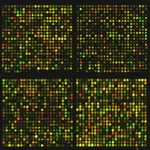
Importance of bioinformatics in biological research
May 18, 2023Bioinformatics plays a crucial role in advancing biological research by combining the power of computer science, statistics, and biology to analyze and interpret vast amounts of biological data. Here are some key reasons why bioinformatics is important in biological research:
Data management and storage: With the advent of high-throughput technologies such as DNA sequencing and gene expression profiling, biological research generates massive amounts of data. Bioinformatics provides the tools and techniques to store, organize, and manage this data effectively, ensuring its accessibility and preservation for future analysis.
Genomic analysis: Bioinformatics enables the analysis of genomes, including the identification of genes, their functions, and regulatory elements. It helps researchers understand genetic variations within populations, such as single nucleotide polymorphisms (SNPs) or structural variations, and their association with diseases or traits.
Functional annotation of genes: Bioinformatics tools aid in the functional annotation of genes, which involves determining the biological roles and significance of genes in cellular processes and disease mechanisms. This includes predicting protein functions, identifying protein domains, and analyzing gene ontologies.
Comparative genomics: By comparing the genomes of different organisms, bioinformatics allows researchers to study evolutionary relationships and identify conserved regions or genes. Comparative genomics helps understand the genetic basis of diseases, identify drug targets, and gain insights into the biology of organisms.
Transcriptomics and gene expression analysis: Bioinformatics methods are used to analyze transcriptomic data, such as RNA sequencing, microarrays, and proteomics. It helps researchers identify differentially expressed genes, discover novel transcripts, and understand gene regulatory networks.
Structural biology and protein analysis: Bioinformatics facilitates the prediction of protein structures, which is crucial for understanding protein function and drug design. It also aids in protein sequence analysis, protein-protein interaction prediction, and protein function annotation.
Systems biology: Bioinformatics enables the integration of diverse biological data types, such as genomics, transcriptomics, proteomics, and metabolomics, to build comprehensive models of biological systems. This systems-level approach helps uncover complex biological networks, understand cellular processes, and predict the behavior of biological systems.
Drug discovery and personalized medicine: Bioinformatics plays a vital role in drug discovery by analyzing molecular interactions, predicting drug-target interactions, and screening compound databases. It also contributes to personalized medicine by analyzing individual genomic data to predict disease risk, tailor treatment strategies, and develop precision therapies.
Data mining and pattern recognition: Bioinformatics tools and algorithms are used to mine large biological databases and extract meaningful patterns and associations. This helps identify biomarkers, discover novel drug targets, and uncover hidden relationships between genes, proteins, and diseases.
Overall, bioinformatics provides a fundamental framework for handling and analyzing biological data, enabling researchers to gain insights into the complexities of living systems, understand diseases, and develop innovative solutions for healthcare and biotechnology.


















